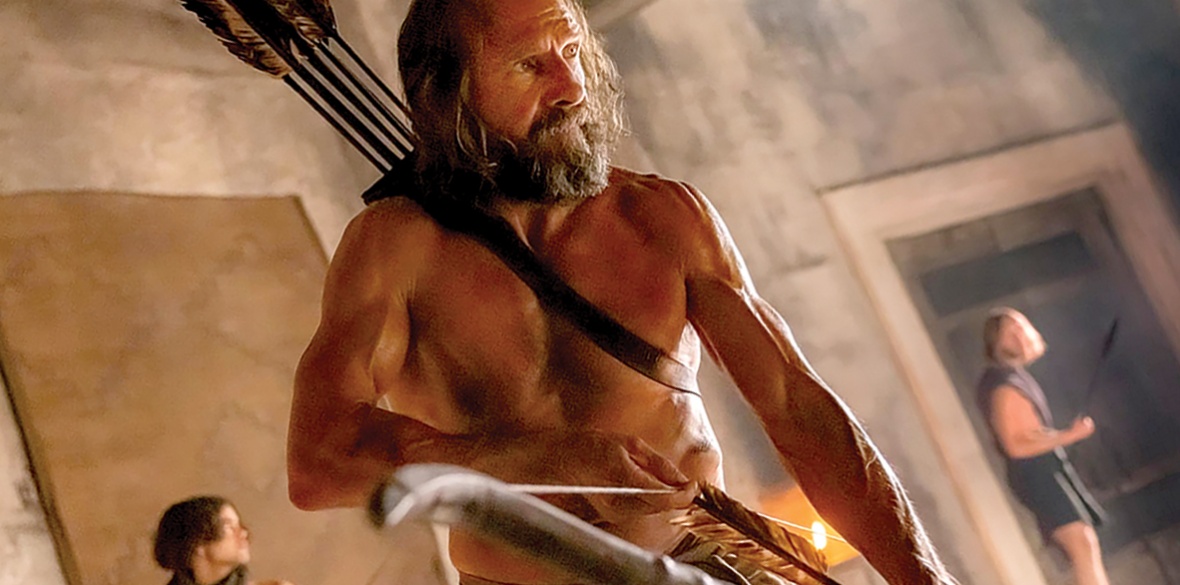This is the last article you can read this month
You can read more article this month
You can read more articles this month
Sorry your limit is up for this month
Reset on:
Please help support the Morning Star by subscribing here
The Return
Directed by Uberto Pasolini
★★★★
STARRING Ralph Fiennes and Juliette Binoche, The Return retells the story of Odysseus’s homecoming 20 years after waging war against the Trojans.
Based on Homer’s mythological tale, it has been adapted by Edward Bond, John Collee and Uberto Pasolini, who also directs.
It has the feel of a Shakespearean tragic drama, and indeed I feel the stage would have been more appropriate for it than the screen.
It is a riveting watch, nevertheless, and a tour de force for Ralph Fiennes as Odysseus. He totally dominates throughout with his spare gestures and expressive face, changing like a landscape through the seasons. Juliette Binoche, playing his wife Penelope, also excels but has a largely passive role.
Odysseus is washed up, unclothed and half-dead on the shore of the island of Ithaca, where he is found by a slave, who takes him into his hut and looks after him. His wife, Penelope, refuses to believe that her husband is dead, although their son Telemachus, who has never known his father, believes he is and that his mother should remarry one of her many suitors.
She at first fails to recognise the old man, who arrives at the palace, with his scarred and bruised body and wild beard, as her long-lost husband. He is reluctant to make known who he is, hiding from the world in shame and bitterness.
The myth is treated as a factual story, with strong resonances for our contemporary world. It is an implicit anti-war film that has an urgent relevance. How war not only destroys enemies but also brutalises and dehumanises the victors.
Penelope sums it up with her heartfelt plea: “Why do men go to war? Why do they burn other people’s houses? Why do they rape and murder women and children? Aren’t they happy with their own family?” reiterated by Odysseus himself as he grieves at his father’s tomb: “The dead are the lucky ones,” he intones mournfully.
It is beautifully shot, mostly in close-up, with interiors reminiscent of Rembrandt’s works. The claustrophobia of life on a small island, with seething unrest and conspiracies being hatched behind every door, is captured perfectly.
The palace is besieged by a motley bunch of Penelope’s well-muscled suitors, greedy for the throne and power.
Towards the end we are presented with a climactic and grisly bloodbath as Odysseus single-handedly picks off his enemies one by one, using his bow and arrows. Not a very credible scenario but it underlines the senselessness of war and killing.
Reunited with his faithful wife, as she sponges off the gore from his ravaged body, they reinforce their love by promising each other “to remember and forget” together.
In cinemas from tomorrow











